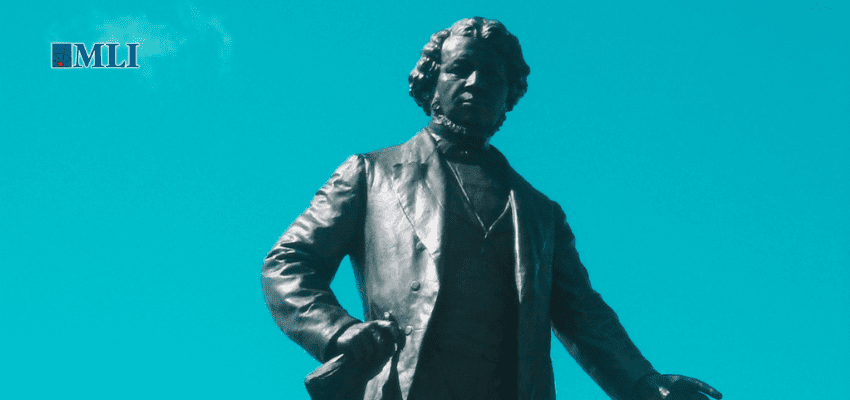This article originally appeared in the National Post. Below is an excerpt from the article.
By Patrice Dutil, April 14, 2025
Those who recognize his name today likely know he was assassinated in downtown Ottawa in April 1868. Those who knew Thomas D’Arcy McGee when he was alive — friend and foe alike — would have been familiar with the bold vision he had for Canada. Those who don’t know about McGee should take a moment to discover the words of the man born 200 years ago this day (April 13.)
Thomas D’Arcy McGee came from a Catholic family based in County Louth on the east coast of Ireland. He lost his mother when he was eight years old and sailed for the United States when he was only 17, desperate to find a firm footing in a rapidly changing world. Smart and energetic, young McGee found work as a budding journalist in Boston, where an Irish community thrived. McGee revealed himself as an Irish patriot, eager to see Great Britain’s grip on Ireland weakened. He even wrote that the United States should absorb Canada.
By his early 20s, McGee had found a voice. He discovered his identity as an Irish nationalist after less than three years in Boston and in 1845 returned to the Emerald Isle. He wrote for Young Ireland’s The Nation and seemed to impress audiences with his eloquent voice and his tireless dedication to the nationalist cause at a time when the potato crop — a food source on which more than a third of the population absolutely depended on for sustenance — was failing. He joined the Irish Confederation in 1848 and was on the organizing committee of the failed rebellion.
McGee, under threat of arrest, shuttled back to the United States and settled in New York, home of another vibrant Irish community. He was exposed to a wide variety of opinions in that intellectual hub and soon caught himself having doubts about Ireland, the United States and Great Britain. The potato famine had exposed grave socio-economic realities and the easy solutions of his youth no longer cottoned to reality. He turned to ultramontanism, a Rome-centred Catholicism, as a shield to the harshness of American life. It was a sturdy protection against the unforgiving anti-Irish sentiment that dominated the American metropolises.
***TO READ THE FULL ARTICLE, VISIT THE NATIONAL POST HERE***






